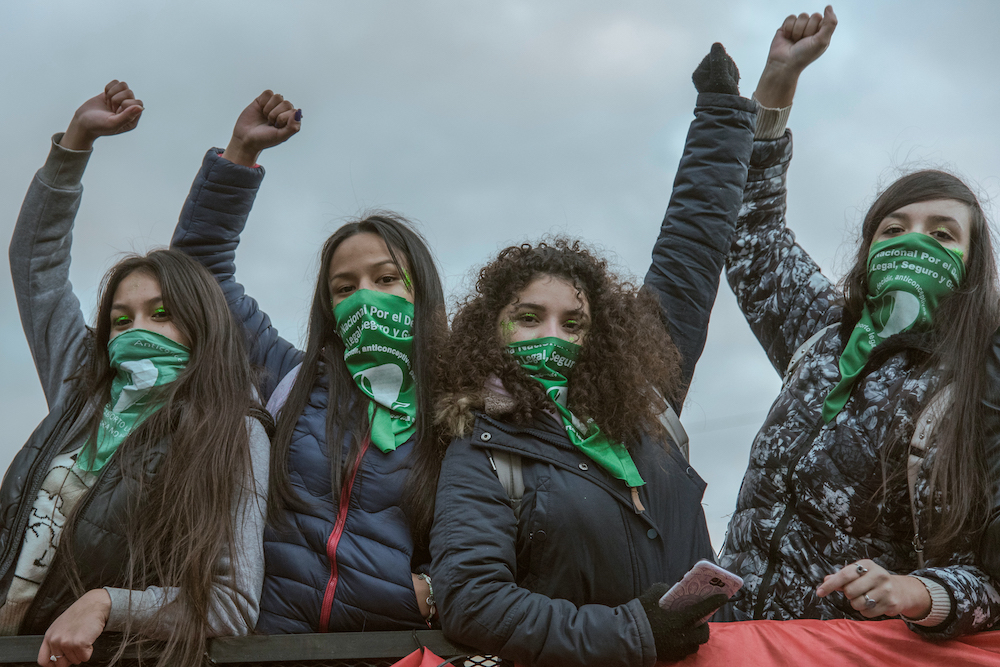
The Freedom From Religion Foundation cheers the fact that abortion is no longer a crime in the predominantly Catholic country of Colombia – the third most populous in Latin America.
On Feb. 21, Colombia’s highest court decriminalized abortion until 24 weeks of gestation — a major victory for abortion rights activists, who have regularly taken to the streets wearing or waving green scarves to signify their support for legal abortion. While activists aimed for a total decriminalization, this is still a historic step for a country where roughly 400,000 women receive clandestine abortions every year. Prior to this court ruling, women who received illegal abortions faced up to three years in prison. In fact, prosecutors in Colombia open roughly 400 cases per year against women who have had abortions and people who have helped them end unwanted pregnancies. According to the attorney general’s office, at least 346 people have been convicted since 2006.
“The U.S. Supreme Court should take note of this reform,” comments Annie Laurie Gaylor, FFRF co-president. “It mustn’t turn the clock back to the bad old days when abortion was illegal in the United States. We have a secular Constitution, and religion is not supposed to rule the state — or determine what women do with their own bodies.”
Colombia is only the fourth Latin American country to decriminalize abortion. Aside from Argentina, Uruguay and Cuba, abortion has been almost universally restricted throughout the predominantly Catholic region. Some nations, such as El Salvador, Nicaragua, Honduras and the Dominican Republic, prohibit abortion without exception. In fact, El Salvador is notorious for imprisoning women who miscarry; some women have been sentenced to 30 years in prison.
Perhaps most heartening about Colombia’s high court decision is that the ruling recognized the right to human dignity, freedom and equality despite the fact that the country is extremely religious. In fact, nearly 70 percent of the country’s population identifies as Catholic and 15 percent as Evangelical Christian. Nevertheless, the court favored women’s bodily autonomy over religion. Hopefully other Latin American countries will soon follow suit.
Photo via Shutterstock by Damian Basante.

